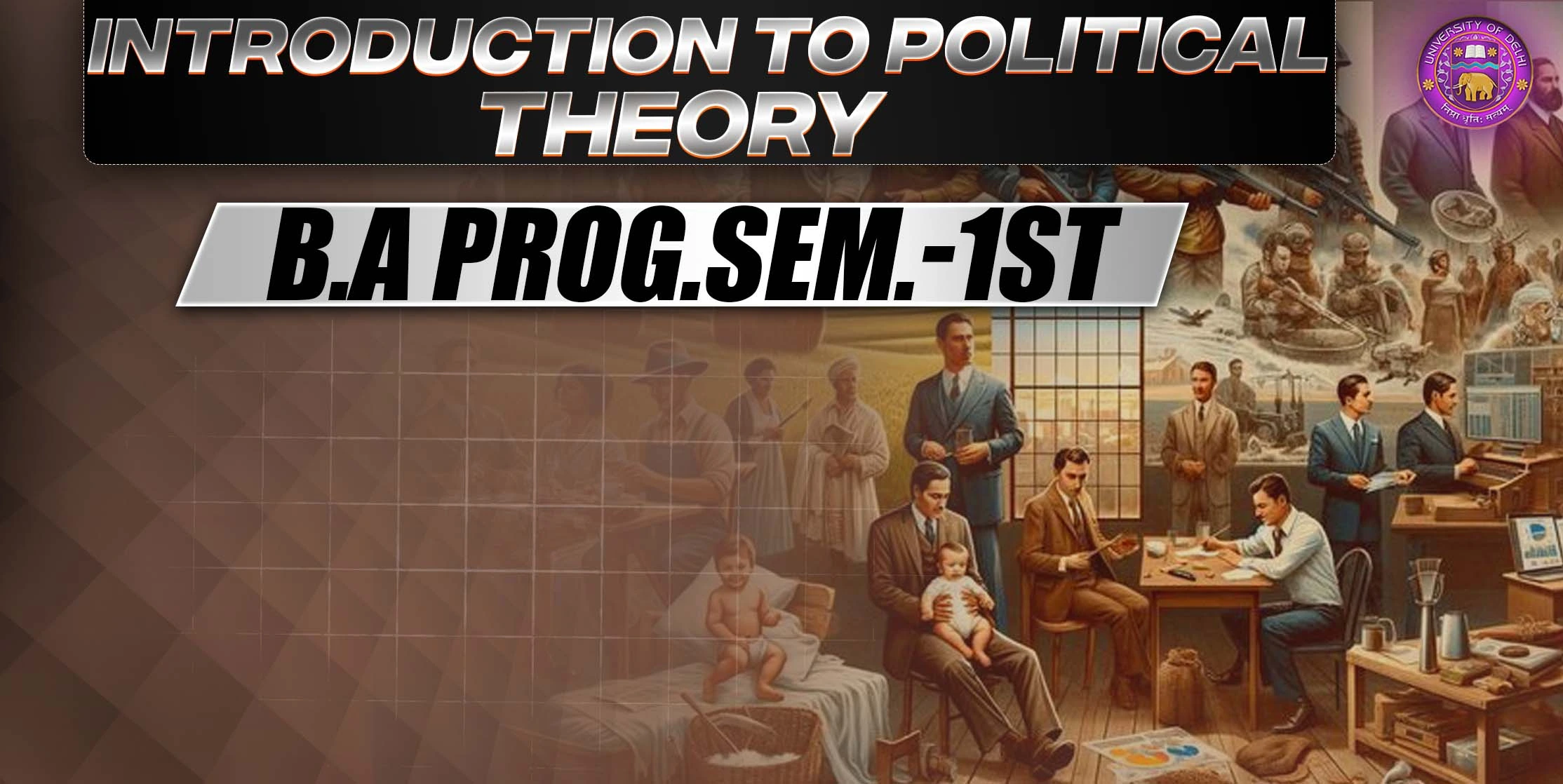
Get in Touch
We will get back to you within 24 hours.
Welcome to MVS Blog

Answer - Introduction
Political science is an ancient and contemporary subject, whose roots extend to great thinkers like Plato and Aristotle. The subject has constantly incorporated new content and new perspectives, thereby increasing its relevance and importance over time. 'Political theory' is made up of two words: 'political' and 'theory'. The word 'political' is derived from the Greek word 'polis', meaning city-state. The word 'theory' is derived from the Greek word 'theoria', meaning a state of contemplation and reflection.
Meaning of political theory:
Political theory is a systematic study of ideas and institutions related to the state, government and society. It analyzes political processes, understands their impact, and presents a vision of an ideal state and society. Its purpose is to establish a better political system based on the principles of justice, freedom, equality and stability. Political mtheory is related to both political philosophy and political science, and its importance is because it makes policy making and governance fair and balanced.
Views of various thinkers on political theory:
Andrew Hacker: “Political theory is a combination of an unbiased search for a good state and society on the one hand and an unbiased understanding of political and social realities on the other.”
David Held: "Political theory is a set of concepts and general speculations concerning political life, including accounts of the nature and goals of government, state, and society, in political capacities of human beings."
Political theory three major elements: observation, interpretation, and evaluation.
1. Observation :
2. Explanation :
3. Value Judgement :
Both facts and values are important in theory building. The political writer plays the role of both a scientist and a philosopher. He has to collect facts and determine his goals and ideals, such as democracy, freedom, equality and justice.
When he evaluates these values, he is influenced by his own interests and viewpoints. However, a thinker adopting a scientific approach unbiasedly establishes principles that are based on facts and scientific findings.
The nature of political theory:
Political theory has been changing and developing according to the circumstances of time and era. Many thinkers and philosophers have contributed to this development, who have created theories keeping in mind various social, economic and political circumstances. Political theory has taken three major forms in the course of development:-
1. Traditional political theory :
Traditional, also known as idealistic political theory. This theory is based on idealistic ideas and imaginations that provide inspiration for structuring an ideal state or system of government. For example, Plato envisioned "Philosopher Kings" and presented the framework of an ideal state based on them.
Plato's concept of "philosopher kings" is the basis of the ideal state presented in his treatise "The Republic". These rulers are adept in knowledge, reason, justice, and morality. They establish truth, equality, and social justice without any selfish motives
2. Modern political theory :
3. Contemporary political theory:
Importance and Relevance of Political Theory
1. Understanding political institutions and processes: Political theory helps in understanding political institutions and their functions. It provides a scientific approach to understanding the functioning of various political structures, such as democracy, dictatorship, and federal system.
2. Preservation of the values of society: Political theory provides direction for preserving values such as justice, freedom, equality and human rights in society. And helps us understand how these values can be implemented in the future.
3. Guidance in political decisions: Political theory helps in understanding policies and decisions. It suggests to political thinkers the rationale behind political decisions and their social impact, thereby helping in the direction of good governance.
4. Use of Scientific Methods: Contemporary political theories, such as those of 'Brian Berry' and 'John Rawls', use scientific and empirical methods to understand political events and theories. This makes theories more practical and effective.
5. Solution of social problems: Political theory provides guidance for solving various problems present in the society such as inequality, conflict, and injustice. This theory is helpful in presenting just and stable solutions for the society
Conclusion
The evolution of political theory is an ongoing process. Emerging ideas such as NeoMarxism, Communitarianism, and Existentialism are enhancing its relevance. Political theory provides direction to society, government, and the constitution, while interpreting key concepts like liberty, equality, justice, and democracy. It also aids in understanding contemporary and future political challenges, thereby contributing to policymaking.
0 Response